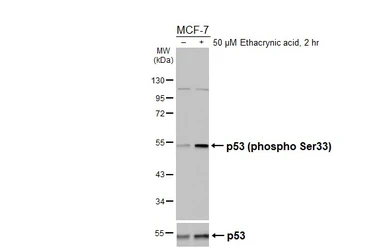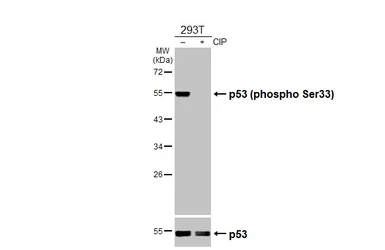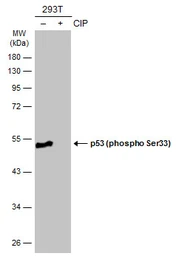p53 (phospho Ser33) antibody
Cat. No. GTX133902
Cat. No. GTX133902
-
HostRabbit
-
ClonalityPolyclonal
-
IsotypeIgG
-
ApplicationsWB
-
ReactivityHuman



